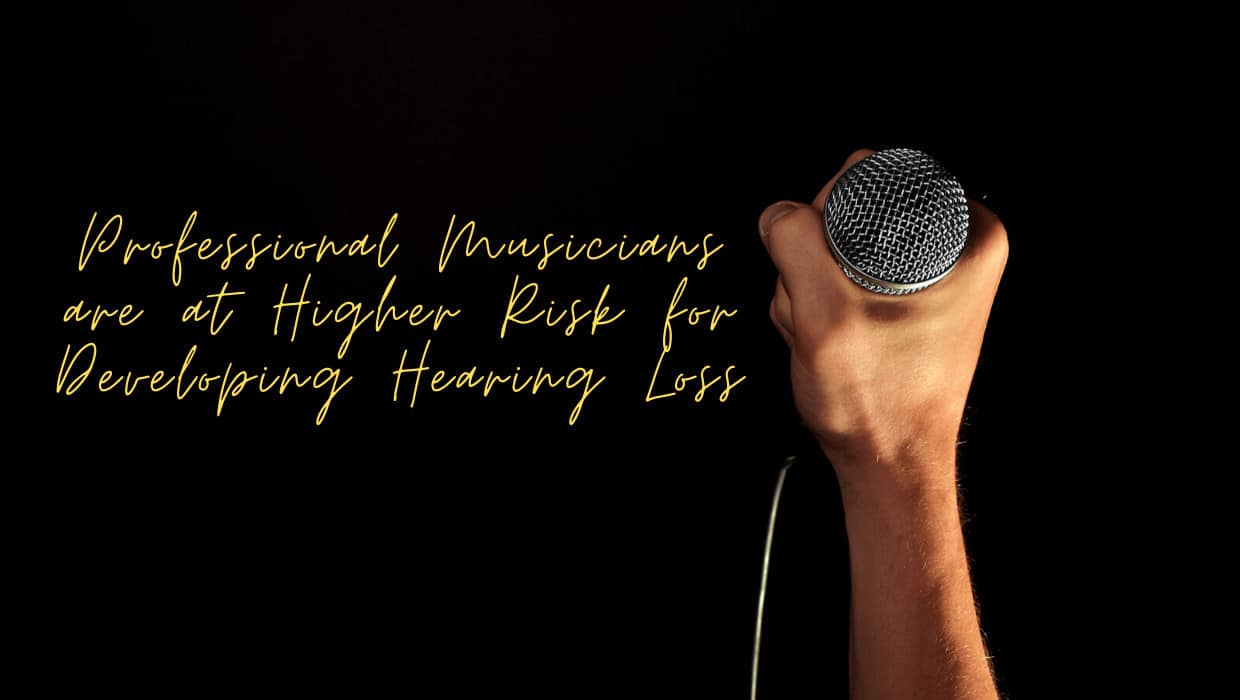Musician Eric Clapton revealed during an interview with a British radio station in 2018 that he is dealing with tinnitus, a ringing in the ear commonly caused by noise-induced hearing loss. Combined with chronic nerve damage in his hands that has affected his back and movement, he says live concerts have become a challenge.
Clapton is far from the only tinnitus-afflicted rock hero. The Who’s Pete Townshend also fought the condition, making use of new technology to continue to tour and record. Sting, Ozzy Osbourne, and Neil Young are also allegedly suffering hearing loss too.
They’re part of a group of musicians increasingly vulnerable to the symptoms of noise-induced hearing loss due to exposure to music.
Studies show musicians at risk
Music can be life-changing, but it can also harm you if you’re not careful. As you enjoy your favorite song, don’t forget that your hearing can also be damaged. This is proven by various studies.
Professional musicians have a four-fold risk of getting hearing loss compared with those in any other industry, according to a German study that analyzed the health insurance records of 7 million people from 2004 to 2008. They were also 57 percent more likely to have tinnitus brought on by their work— ringing in the ears, according to research published online in Occupational & Environmental Medicine.
Although there have been recent studies that note the possible benefits of listening to music to reduce the effects of hearing loss, the researchers of the above study claim these benefits are overstated:
“Our data suggests that in professional musicians the risks of music-induced hearing loss outweigh the potential benefits for hearing ability, as reported by [other researchers]”
Noise-Induced Hearing Loss
Much of our hearing capacity relies on the sensory cells which are in the inner ear’s cochlea. Such hair cells absorb sound wave vibrations in the air. Sound waves of different frequencies vibrate and activate the hair cells, which are then sent to the brain. This, in effect, gives the brain an electrical signal, which then derives sense from the incoming sound.
Hair cells are incredible and very fragile too. The hair cells with which we are born are the only hair cells we’ll ever get. When they undergo damage, they can not rebuild themselves or make new hair cells. Hair cells do have the elasticity to withstand a wide range of volumes of sound. Exposure to loud noises, however, can stress the hair cells beyond repair and cause harm.
Noise-induced hearing damage builds throughout our lifetime, as more and more hair cells are unable to function. It adds up and eventually becomes a hearing loss caused by noise. This damage is permanent.
How musicians can reduce their risk of hearing loss
Get tested: Baseline hearing tests are crucial to regularly getting for anyone exposed to loud music. Request for tests on a spectrum of 125 to 20,000 hertz, since the very high frequencies sometimes display first a loss. If you are experiencing a ringing, buzzing, or an unexplained sound in your ears, consider including a tinnitus examination.
Use in-ear monitors: In-ear displays let musicians hear the sound engineer’s mix in their ears directly. Work closely with your audiologist to choose in ear monitors that are suitable for your requirements.
Consider custom-fit hearing protection: Typical foam earplugs can make speech and music muddled, and music and voices can sound unnatural and unclear, mainly in the high-frequency range rather than in the middle to the low-frequency range. Customized earplugs make the sound easier across frequencies and reduce decibel levels, thus preserving the natural quality of speech and music.
Practice safe earphone use: Most musicians expose their ears for long periods of sound during the recording, mixing, and listening to music. In addition to being the only unfortunate aspect of headphones and earbuds, the total volume level is raised by listening to loud sounds for a long time. Limit the overall level of decibels to headphones and earbuds and take regular noise breaks so that your ears can rest.


